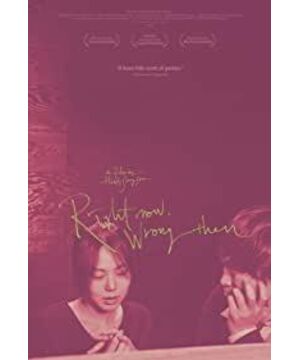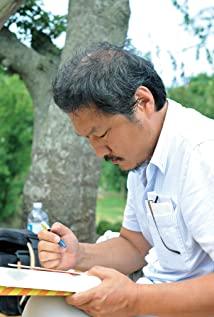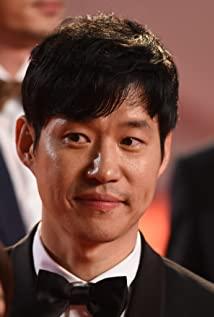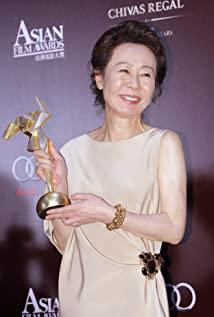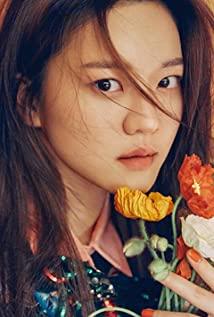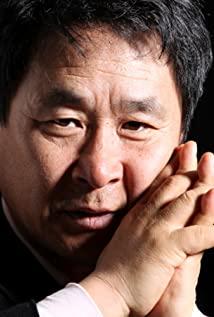The structure of this film is very simple, and I am not afraid to reveal it. I think it is interesting to pay more attention to the atmosphere after understanding it.
It can be described twice as follows:
The man is a well-known art film director, married, and goes to a small town for screenings (and the director of this film, Hong Sang-soo, never shy away from his identity, and often sets this up). When he arrived in the small town, he realized that it was a day early, so he could only hang out. He met a beautiful woman at the scenic spot and was immediately attracted. He approached her skillfully, asked her to drink coffee, learned that she was a novice painter, and asked to see her works in her studio, and then said something that revealed his artistic sensibility. In the evening, the two of them ate and drank together. When he was drunk, he took the opportunity to confess, and the woman remembered that she had made an appointment with a friend, so he reluctantly followed. At the literary cafe, after seeing a few of her friends, the man drank too much. The next day he had a very bad hangover, so he went back to Seoul after the screening.
Such a thing is really not a "good story in the traditional sense", and it is difficult to imagine what "revelation" will be here. I watched it twice, and I clearly felt that although the two experiences were similar, what the two felt when they walked out of the (video screen), the first time was the embarrassment of not using all the words, the second time was the lack of words. Regret after useless.
The two times are slightly different, as if they happened in parallel spaces. Or, one real experience and one twisted memory in the mind. Of course, the most likely thing is that nothing happens in reality, only encounters, and the film is a shadow of reality, a black reflection of everything that "happens" in the world.
The second time, when he first met, he confessed that the woman was too beautiful, as if he was so submissive to his own desires, that he was sincere and could get a spiritual response. He couldn't recognize that the woman was always just what he wanted to read. Every time he expresses in a different way, he just guides the woman to make different reactions. The woman did not actively change the development of the story, did not show clear preferences and desires, she was still in the process of chasing and establishing a vague self. Male discourse sculpted. All kinds of empty nonsense can actually stack up different atmospheres and show them on the woman, as if the result, which is wonderful.
I don't want to specifically compare the difference between the two stories, because the interesting thing is that each audience sees "different points" and then draws different meanings. I think viewers who like this film will probably have the habit of reading at length, because the text here is critical. In the case where the plot dynamics are too small, the director uses language to weave a sense of space that is interlaced and interesting like a maze.
Do you feel that you will have no regrets after the communication is achieved? But it turns out that it might be wrong. You think I understand you, I think you understand me, that is the best possibility.
This video gave me a lot of associations, and my memory is messed up. Even thinking we don't understand the need for intersection (maybe not at all). The intersection of people happens on different levels, and there is a subtle joy of being here. Life is always old-fashioned, but fortunately, we don't feel that way on a daily basis, otherwise we will not be able to live a day.
What does a film like this help the audience understand?
There is one point about the "structural differences" of people's hearts.
The Buddha statues and bells are a wake-up call.
Reminders that you will always lose, always forget, and always die.
Director Hong Sang-soo, who has been making "this" stories, gave me a lot of spiritual support.
Yes, this is the topic I care about the most.
This is the shadow of my life.
Also my work.
Please feel free to look at it.
——————————————
This note was written in a memo after reading it last night, and it was written intermittently. I woke up this morning and wanted to complete it, but I felt that there was nothing to make up, so I tried to glue it together.
I watched this movie twice and I still feel like I missed a lot of details (of course it doesn't matter). And I wanted to watch it for the second time after watching it for the first time, but I still waited for a while, trying to make the story feel a little strange again, otherwise it would become a "finding fault" game accidentally. After reading these two stories for the first time, I was very puzzled how the director managed to manage the daily dialogue so delicately. Both times sounded reasonable, nothing special at all, both happened, and happened countless times. But the first time it exudes a vulgar and embarrassing taste, but the second time there is a "good feeling". After watching it for the second time, I don't think it seems to be a particularly superb skill, but I am not disappointed at all, and I still admire it very much.
(Because of sensitivity and courage? Haha)
View more about Right Now, Wrong Then reviews


